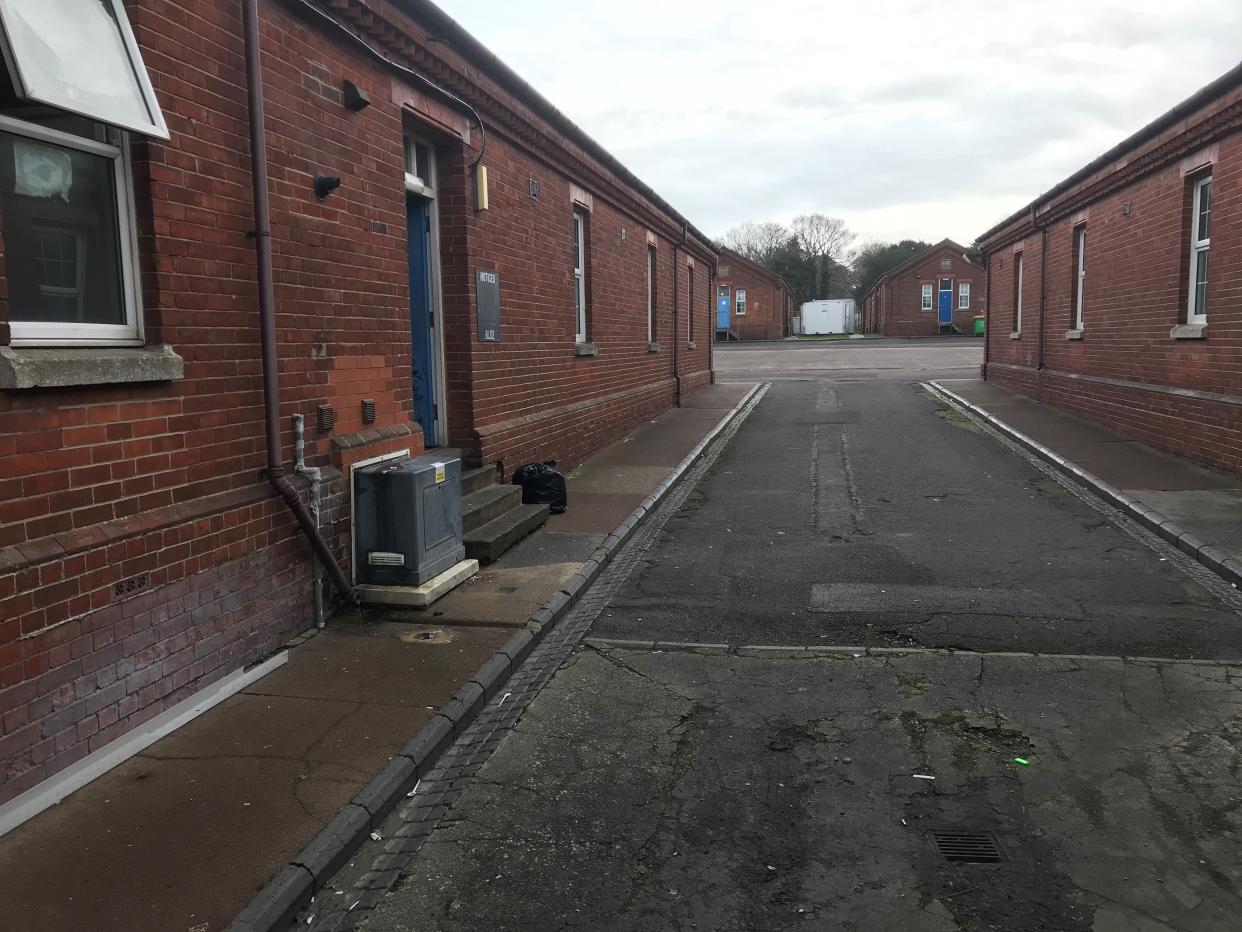Home Office accepts it placed asylum seekers at heightened risk of Covid in barracks, court hears

The home secretary had ‘always accepted and acknowledged that transmission risk is higher in congregate settings’ such as Napier Barracks, the court heard
(ICIBI)The Home Office has admitted that it placed asylum seekers at increased risk of contracting the coronavirus when housing them in military barracks, and justified this by saying the men were “young and healthy”.
Priti Patel’s lawyers said she had “always accepted and acknowledged that transmission risk is higher in congregate settings” such as Napier Barracks in Kent, where she placed 400 asylum seekers last September.
A Covid outbreak occurred at the site – where residents were housed 14 to a dormitory – in January, leading to 200 people testing positive. Residents were told during the outbreak that they must not leave the premises, causing considerable distress.
The camp was emptied in April, but the Home Office has started placing a new cohort of asylum seekers there and intends to use the site until September.
A High Court hearing is taking place this week in which lawyers acting for six former residents of the barracks argue that housing asylum seekers there is unlawful and breaches their human rights.
During the hearing on Thursday, Lisa Giovannetti QC, acting for the Home Office, said that while Ms Patel acknowledged the Covid-related risk of placing people at the site, she had decided it could be used safely “by introducing the safeguards, including selecting the individuals that could be housed there with least risk”.
She said: “The risk of significant medical problems would be much higher for somebody who was elderly or had a comorbidity. The secretary of state’s position is these were being sifted out.
“The Ministry of Defence was using them. I appreciate that asylum seekers are not the same as young soldiers, but if you look at the claimants they are broadly that age range, between 21 and 30.
"Throughout the outbreak, nobody did fall seriously ill or was hospitalised and none of the claimants became seriously ill or was hospitalised.”
Public Health England (PHE) warned the Home Office before it repurposed the site that the dormitories were “not suitable” for use – but the advice was rejected and ministers pushed through plans two weeks later to repurpose the facility as asylum accommodation.
Ms Giovannetti told the court that advice from PHE was “primarily about minimising risk of transmission”, adding: “They are not assessing the degree of risk to any individual of significant illness.”
Earlier in the hearing, on Wednesday, it emerged that a report by the fire safety inspectorate into Napier Barracks found that the measures in place to reduce the risk of fire at the site did not ensure residents were “appropriately protected from serious risk”.
The inspection, carried out in November, found that smoke alarms were incorrectly placed, emergency evacuation drills had not been undertaken, and there was “no effective fire safety measure” in place – and ordered Home Office contractors to rectify the issues within 28 days.
A fire safety report published in March 2021 showed that improvements had been made – but when asked by the judge whether they were made within 28 days of the initial report, Ms Giovannetti told the court she could not confirm this to be the case.
She added: “There was the option of taking enforcement action, which the inspector didn’t consider necessary […] If there had been immediate risk to life and serious injury, you would have expected the inspectorate to do more than give time to comply.”
Earlier in the hearing, Tom Hickman QC, representing four of the six former residents of Napier Barracks who are bringing the case, told the court there had been a “total systems failure” when asylum seekers were placed at the camp.
“There was no risk assessment conducted before the barracks was put into use, no Covid protocol, no testing, no outbreak plan,” he said.
Mr Hickman said the site had “all the hallmarks of a detention facility” and was “not adequate accommodation for vulnerable persons”, describing it as “squalid, ill-equipped, lacking in personal privacy and unsafe”.
The hearing is due to conclude on Thursday evening, with a judgment expected to be handed down at a later date.
Read More
UK Covid-19 vaccinations: Latest figures
Care homes ‘failed’ by lateral flow test rollout, study finds
‘Black manifesto must be included in London mayoral race’
High Court to decide whether housing asylum seekers in barracks is unlawful

 Yahoo News
Yahoo News 
